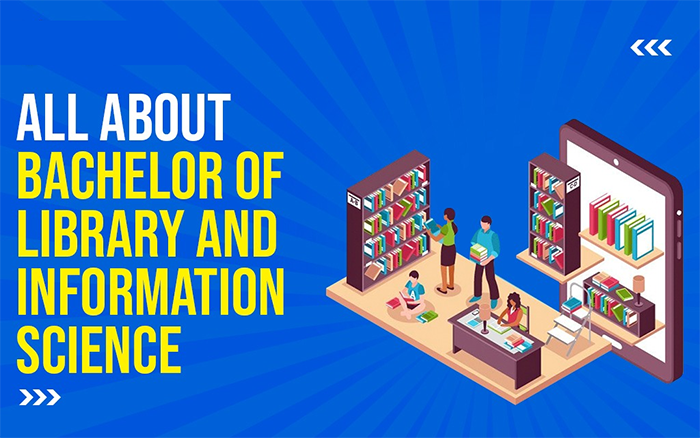
A Bachelor of Library and Information Science (BLIS) is a four–year undergraduate degree program designed to provide students with the knowledge, skills, and competencies necessary to become qualified librarians and information professionals. The program typically consists of courses in library science, information technology, and other related fields. Coursework may also include cataloging, classification, collection development, reference services, and library administration. Upon completion, graduates are eligible to become certified librarians and information professionals in their state or country.
Bachelor of Library and Information Science (BLIS) Eligibility Criteria
In order to be eligible to pursue a Bachelor of Library and Information Science (BLIS) degree, applicants must meet the following criteria:
• Have a Bachelor’s degree in any discipline from a recognized university.
• Have a minimum aggregate score of 50% in the qualifying examination.
• Pass an entrance examination conducted by the college or university offering the BLIS program.
• Clear an interview conducted by the college or university offering the BLIS program.
• Meet any additional criteria laid down by the college or university offering the BLIS program.
Bachelor of Library and Information Science (BLIS) Colleges In India
1. Alagappa University, Karaikudi, Tamil Nadu
2. Annamalai University, Annamalai Nagar, Tamil Nadu
3. Banaras Hindu University, Varanasi, Uttar Pradesh
4. Bharathiar University, Coimbatore, Tamil Nadu
5. Guru Nanak Dev University, Amritsar, Punjab
6. Himachal Pradesh University, Shimla, Himachal Pradesh
7. IGNOU, New Delhi
8. Jiwaji University, Gwalior, Madhya Pradesh
9. Karnataka State Open University, Mysore, Karnataka
10. Mahatma Gandhi University, Kottayam, Kerala
11. Maharshi Dayanand University, Rohtak, Haryana
12. Mangalore University, Mangalore, Karnataka
13. Osmania University, Hyderabad, Telangana
14. Panjab University, Chandigarh
15. Savitribai Phule Pune University, Pune, Maharashtra
16. Shreemati Nathibai Damodar Thackersey Women’s University, Mumbai, Maharashtra
17. SNDT Women’s University, Jalgaon, Maharashtra
18. Sri Venkateswara University, Tirupati, Andhra Pradesh
19. University of Allahabad, Allahabad, Uttar Pradesh
20. University of Calicut, Calicut, Kerala
Bachelor of Library and Information Science (BLIS) List of Stream
The Bachelor of Library and Information Science (BLIS) is a professional degree program designed to prepare students for careers in libraries, archives, information centers, and other information–related settings. The BLIS program typically includes courses that cover topics such as information organization and retrieval, library management, cataloging and classification systems, reference services, and information technology. Depending on the school and the individual program, students may also be required to complete an internship or practicum. The following is a list of streams typically offered in a BLIS program:
1. Information Science & Technology: This stream focuses on the development of digital resources, the creation of digital information systems, and the use of technology to access and share information.
2. Library Services & Administration: This stream focuses on library administration, operations, and management. Students learn about library policies, budgeting, and personnel management, as well as how to develop library collections and services.
3. Information Organization & Retrieval: This stream focuses on the organization and retrieval of information, including classification systems, cataloging, and metadata.
4. Research & Reference Services: This stream focuses on providing research and reference services to library patrons. Students learn about the different types of reference services and resources, as well as the techniques and technologies used to answer patron inquiries.
5. Archival Studies & Preservation: This stream focuses on the preservation and organization of archival documents and records. Students learn about archival practices and the importance of preserving and managing historical documents.
6. Technology & Information Resources: This stream focuses on the development and implementation of technology–based information resources. Students learn about the different types of software used to access and share information, as well as the security and privacy issues related to technology–based information management.
Bachelor of Library and Information Science (BLIS) Syllabus
Semester I
1. Introduction to Library and Information Science
2. Information Sources and Services
3. Information Technology and Systems
4. Reference and Information Retrieval
5. Organization of Information
6. Library Management
7. Information Literacy
Semester II
1. Research Methodology
2. Cataloguing and Classification
3. Preservation and Conservation of Library Materials
4. Special Libraries and Services
5. Digital Library
6. Library and Information Services for Children
7. Project Work






